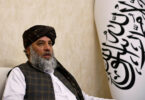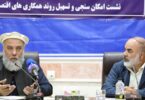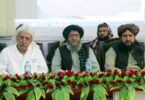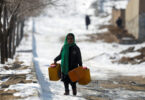Dr. Tariq Khan
The spectacular developments in a short period in Afghanistan have dazzled even the most imaginative. Many people were predicting the fall of the Ashraf Ghani regime in Kabul. However, nobody could speculate the speed and the ease of the Taliban takeover in Afghanistan. The blame game for the collapse of the Ashraf Ghani regime is on. The US blames the debacle on Ashraf Ghani’s government, specifically the Afghan Army who failed to defend the government. Prominent functionaries of the government such as Abdullah Abdullah and former Defense Minister Bismillah Mohammadi are blaming Ex-President Ashraf Ghani for leaving the country and even being part of a ‘conspiracy to hand over Afghanistan to the Taliban. The supporters of Ashraf Ghani are talking about the US and their own partners’ betrayal. There are voices inside Afghanistan, India, and the US that blame Pakistan for the Taliban’s success. However, the collapse of the Ghani regime is such a monumental disaster that a factor like Pakistan cannot explain it satisfactorily. This aspect is visible in the discourse of segments of Western intelligentsia where Pakistan is only passingly mentioned.
Beyond current politics, the socio-political factors at the deeper level such as the political and administrative culture of Afghanistan are also under discussion. The history goes back five thousand years. The territory comprising Afghanistan has remained a favorite battlefield for empires. The historian considers Afghan geographical terrain as the main reason. Afghanistan has always provided mercenaries for wars. A substantive theory postulates that since agricultural land has always been limited in comparison to its population, the surplus population has to resort to a war economy to sustain itself. Besides historical foreign influence, the country hosts multiple races and ethnicities which makes it very difficult for a central body to rule Afghanistan smoothly.
There are fears that the above-mentioned two historical factors namely foreign influence and war economy would continue to affect politics and developments in Afghanistan in the future. Ashraf Ghani’s regime was financially sustained by the West. In these two decades, the administration has grown in size and has modernized because of the free flow of money from the West. The money has also created local commerce and industry feeding a foreign-funded class. Taliban are very simple people. Their previous administration was lean and they are used to live in a simple agrarian environment. They have two options, first, they would be cutting expenditure on state machinery, which means a sizable jobless population and subdued commerce and industry. A population who had tasted relative prosperity in the near past can be kept under a situation offering fewer economic opportunities through force for some time but not in the longer run. The chances of the negative political fallout of austerity are very much there. Besides, it is very hard to govern a relatively complex and diversified society through simple and lean administrative structures. Society would have to be simplified to govern it through simple administrative structures. That is what the Taliban had been doing in their previous regime by discouraging certain types of technologies and government offices. Such a strategy would not be feasible this time.
The second option for the Taliban is to open up to different political denominations and Afghan society, as Pakistan has been suggesting for a long time. A broad-based government with crucial stakeholders would create an environment for political stability and economic growth. An inclusive and conciliatory approach by the Taliban would allay fears of the international community. It will provide a sufficient basis for acceptance by the international community, increasing the chances of monetary flows from the international community, which are direly needed for a stable and prosperous Afghanistan.
Historically, Afghanistan has always been ruled by a faction of the society, either ethnic or political. Resultantly, some crucial groups have been left out. The complexity of ethnic and political groups necessitates that a representative setup where the majority of ethnic and political groups should have some representation is essential for durable political stability. It is such a historical opportunity. For the first time, all ethnic groups and political factions are in a mood to set together and find some solution. The international community is more than willing to accept an all-inclusive and diverse political setup. The appetite of members of the international community to impose their solution on Afghanistan has also reclined. Pakistan has played its role by inviting diverse Afghan leadership on its soil and is preparing the ground for constructive engagements among various stakeholders and political leaders. It is a historical moment and should not go to waste. Nothing will be more tragic than an opportunity wasted like this.
Dr. Tariq Khan – Fulbright scholar with a Ph.D. in Globalization and Communication






